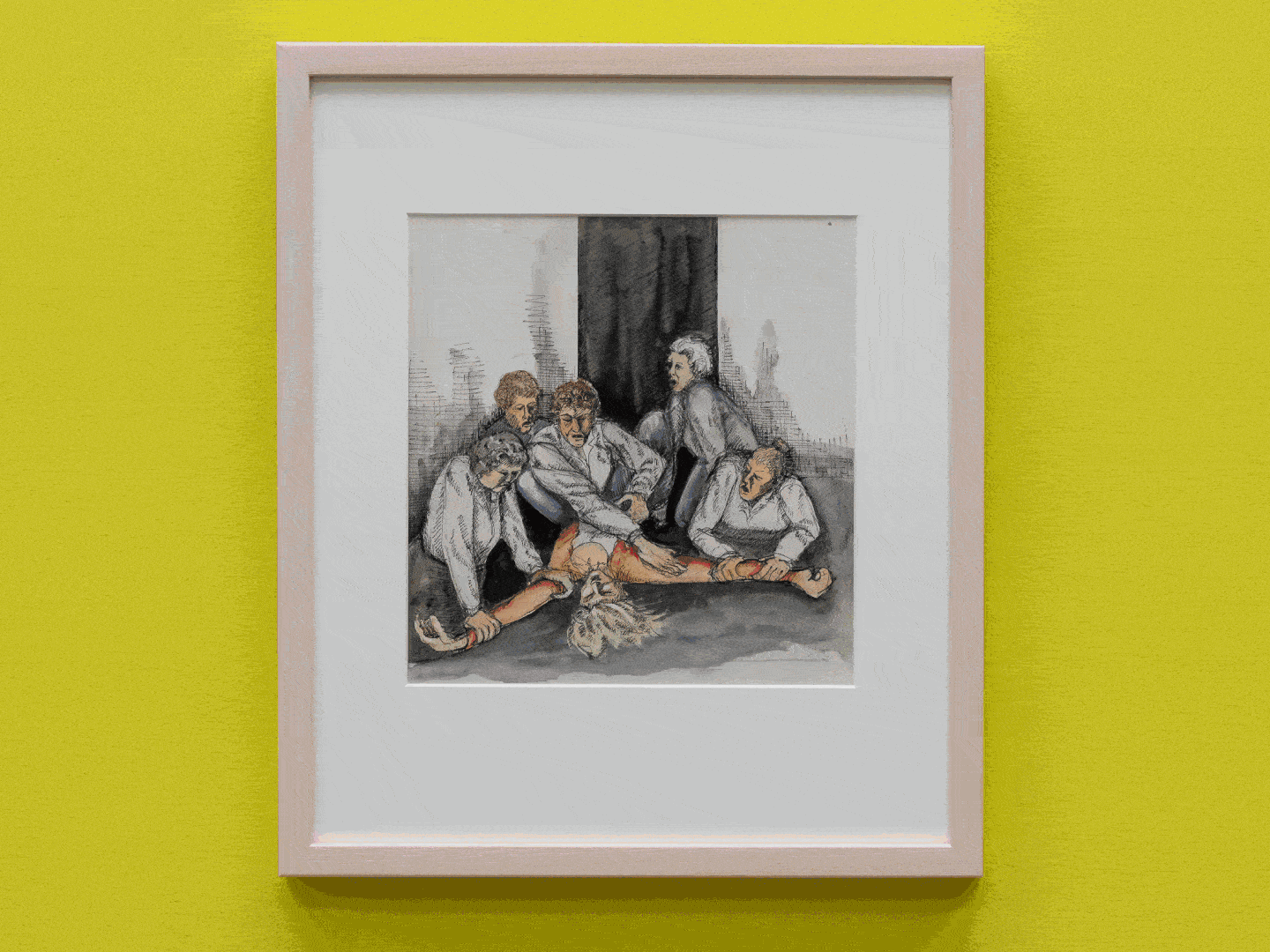Open the book at a different page - Derry Film and Video Workshop
December 1, 2021–January 29, 2022
39 East Essex Street
Temple Bar
Dublin
Ireland
Hours: Monday–Saturday 11am–5pm
T +353 1 881 9613
box-office@projectartscentre.ie
Project Arts Centre is delighted to present Open the book at a different page, the second chapter of Sara Greavu & Ciara Phillips’s exhibition-project dealing with the history and archive of the radical film collective, Derry Film and Video Workshop, co-commissioned with EVA International.
An archive document from 1988 outlines their vision: “Derry Film & Video Collective was legally formed as a company in June 1984 as a logical extension of an idea which was being developed by a small group of people in the northwest of Ireland. We observed that the north of Ireland had become one of the most media-biased areas of the world over the preceding 15 years and that, for the most part, this media coverage was sensationalist, superficial, interventionist and censored. Derry Film & Video was formed, therefore, to make an indigenous contribution to media representation of our lives.
Its original members were all women with varied backgrounds and experiences in theatre, photography, literature, community-oriented projects and youth employment schemes. All shared a common interest in challenging the accepted views which have been propagated abroad of Irish people. In particular we were interested in the representation of Irish women.”
Derry Film and Video Workshop (DFVW), also known as Derry Film and Video Collective (DVFC), was established in Derry, Ireland in 1983, incorporated in 1984, and lasted until 1990. Collective members, at different points in time, included Anne Crilly, Margo Harkin, Trisha Ziff, Geraldine McGuiness, Jim Curran, Stephanie English, Tommy Collins, Therese Friel, Brendan McMenamin, and Jamie Dunbar. They came together with a sense of urgency to address overlapping political tensions around gender, class, legacies of British imperialism and the Irish “national question.” Working to counteract the epistemic violence of depictions of the north of Ireland, its conflict, and its people by British TV news and cinema, members of DFVW sought to tell a different story about their lived political and social realities. The intersections and fractures between feminism and republicanism were the key area of interest that shaped their output. In doing this work of representation and crafting both documentary and fiction films, they learned methods of researching, filming, logging, collating, scripting, and editing through doing, driven by a sense of the pressing political need to speak on their own behalf.
Moving through the archive, the research by Sara Greavu and Ciara Phillips works to uncover the organic, reactive, and experimental methodologies of the collective and their tensions and frustrations, both internal and external; as well as the overarching political principles and energy that bound them together.
The work of DFVW amounts to more than its filmic outputs. Revisiting the project provides an opportunity to think beyond notions of the filmmaker-auteur and to think through practical and administrative aspects of this work as well. It becomes possible to consider context, infrastructure, physical space and those allies who were willing to hold space for the work to be made. It points to the experience of being both incorporated and disavowed through financial and distributive dependence on a British broadcaster—albeit the most progressive of these, at that time.
The first chapter of the project, titled “We realised the power of it,” took place as part of the 39th EVA International in Limerick. This presentation at Project Arts Centre forms the second chapter within Greavu and Phillips’s ongoing research process. It has involved working with former members of the collective, their supporters, peers, and fellow activists, including helping to preserve, digitise and archive original U-matic videotapes, and working with an extensive document and image archive that was preserved by former collective member, Margo Harkin. Open the book at a different page involves unseen footage, photographs, and archival documents that trace a partial history of the workshop and its practice. The exhibition explores their story and their practice, and how modes of resource-sharing and collective organising amount to a kind of speculation about what the future could be, prefiguring and proposing a different way of working.
Please contact Sorcha FitzGerald at marketing [at] projectartscentre.ie for further information and queries.



